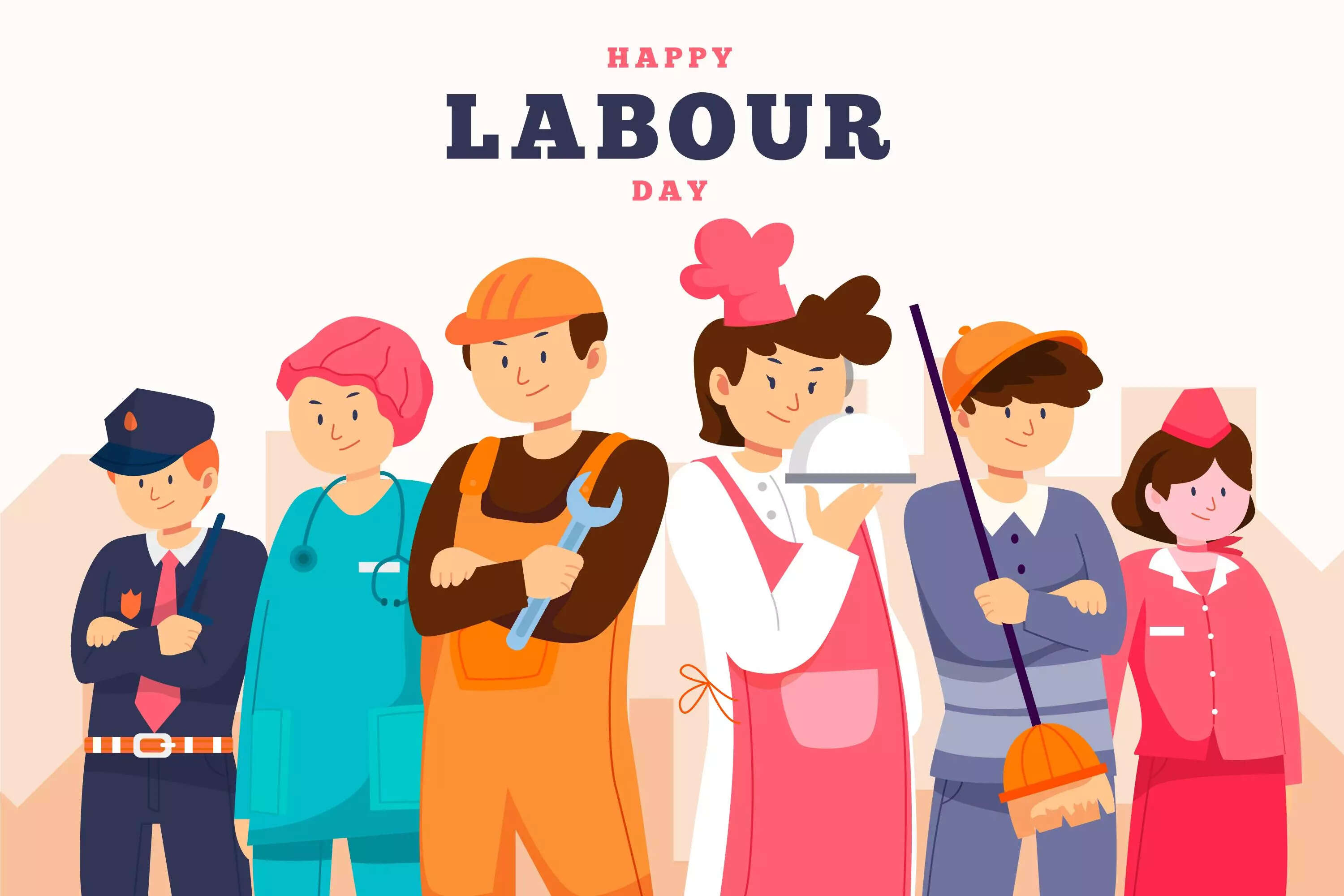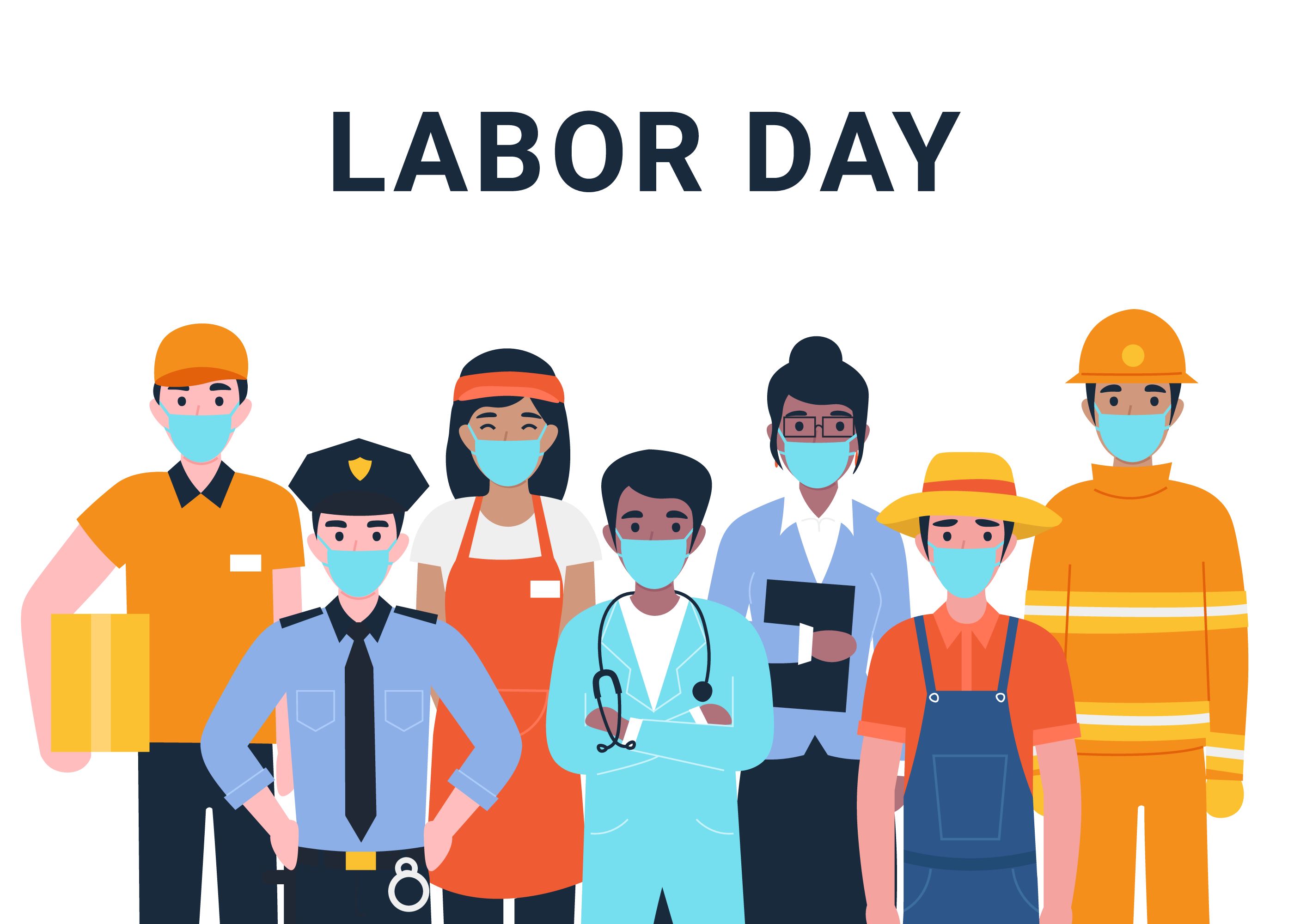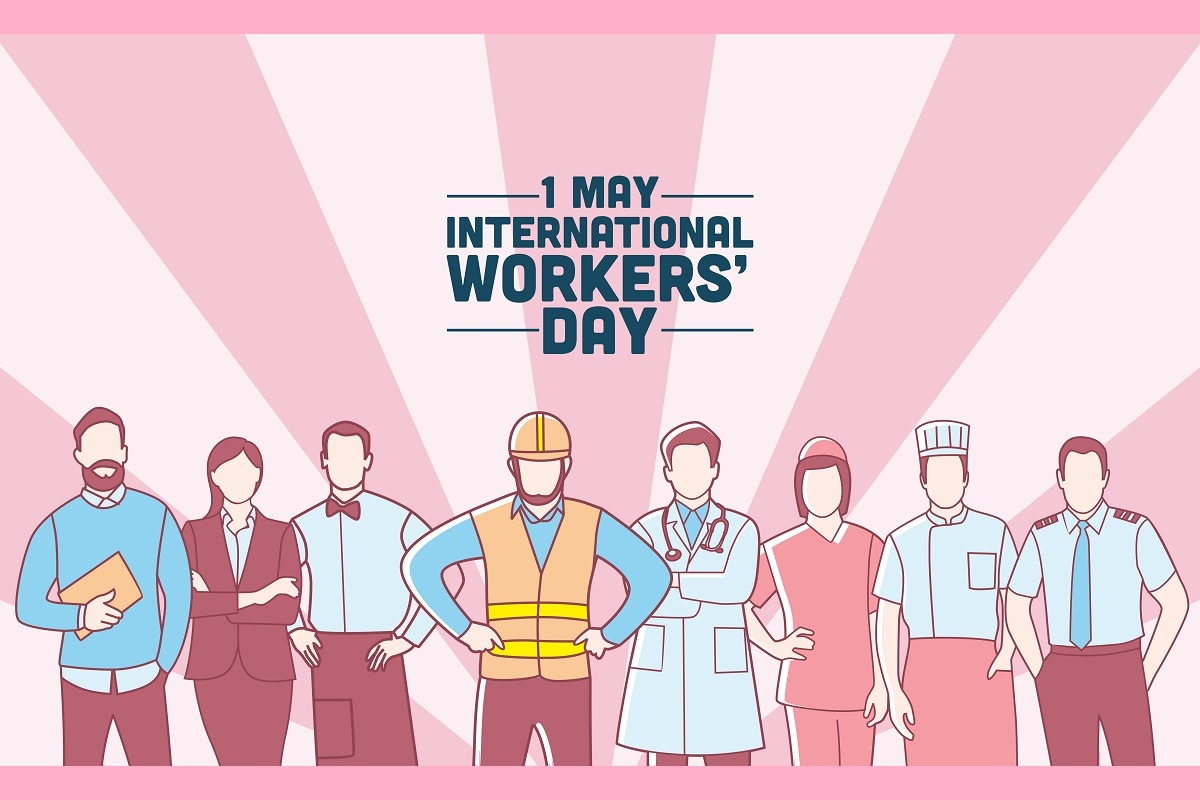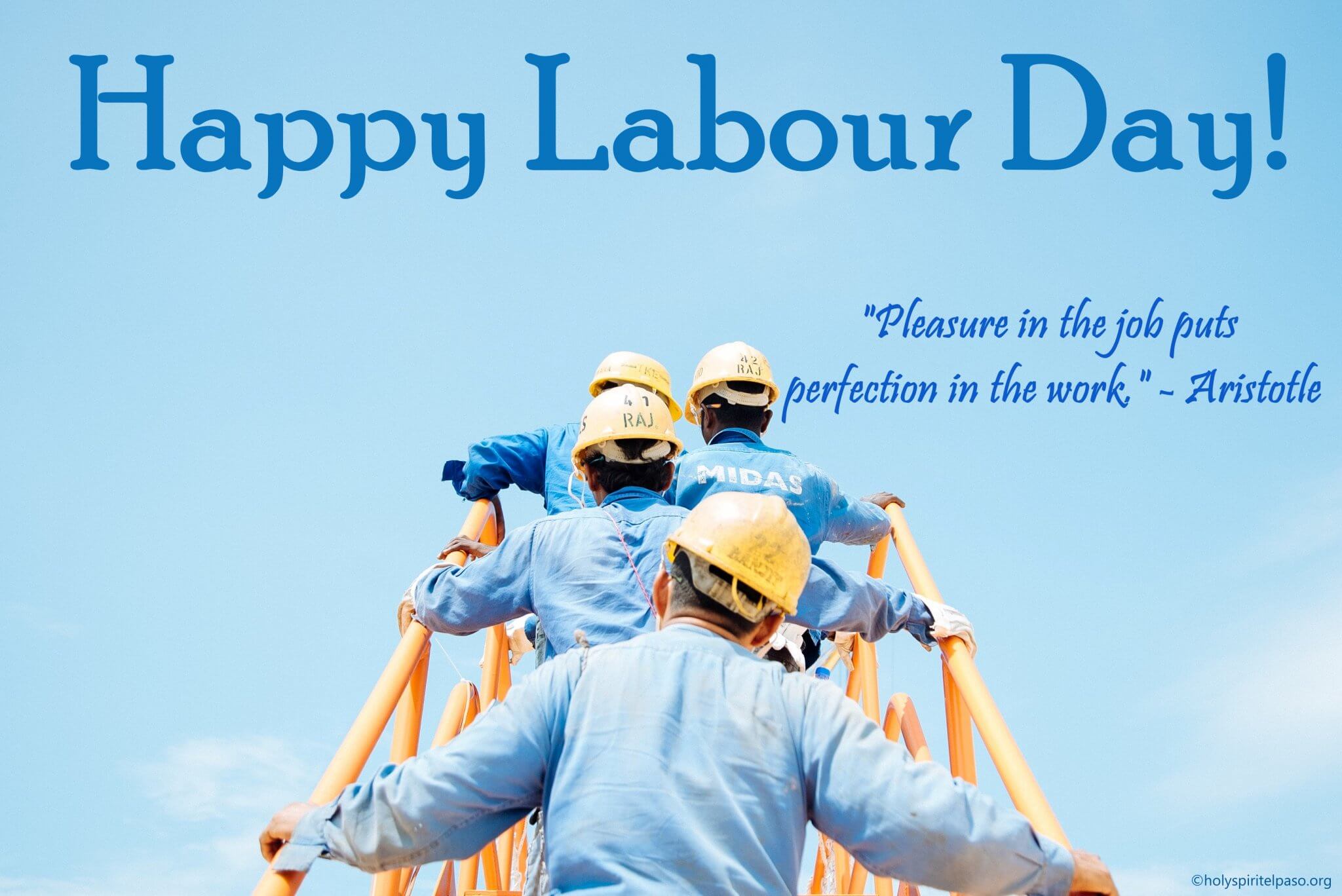Labour Day, a day set aside to honor the contributions and sacrifices of workers, stands as a testament to the struggles and triumphs of the labor movement. From its humble beginnings to its present-day significance, Labour Day serves as a reminder of the enduring power of collective action and the pursuit of social justice.
This day is a celebration of the resilience and determination of workers who have fought for fair wages, safe working conditions, and a voice in the workplace. It is a day to reflect on the past and to look forward to the future, as we continue to strive for a more just and equitable society for all workers.
History of Labour Day
Labour Day, a day dedicated to celebrating the contributions and achievements of workers, has a rich and multifaceted history. Its origins can be traced back to the late 19th century, a time of rapid industrialization and widespread labour unrest.
The first Labour Day was celebrated on 5 September 1882, in Toronto, Canada. It was organized by the Knights of Labour, a prominent labour union at the time. The event was a resounding success, with over 10,000 workers participating in a parade and rally. The following year, Labour Day was officially recognized as a holiday in Canada, making it the first country in the world to do so.
The movement for Labour Day quickly spread to the United States. In 1884, the American Federation of Labor (AFL) called for a nationwide Labour Day to be held on the first Monday of September. This date was chosen to coincide with the existing Labor Day holiday in Canada, as well as to avoid conflicts with other holidays.
In 1894, President Grover Cleveland signed a bill into law, making Labour Day a national holiday in the United States. Since then, Labour Day has been celebrated annually as a day to honour the contributions of workers and to advocate for their rights and well-being.
Labour Day has played a significant role in shaping the labour movement and improving working conditions for millions of workers. It has served as a platform for workers to voice their demands, to advocate for fair wages, shorter hours, and safer working conditions, and to build solidarity among the working class.
Today, Labour Day is celebrated in many countries around the world. It is a day for workers to take a break from their labours, to reflect on their contributions to society, and to celebrate the achievements of the labour movement.
Labour Movement and Unions

The labour movement played a pivotal role in the establishment of Labour Day. Through organized efforts and collective action, workers advocated for improved working conditions, fair wages, and legal protections.
Labour unions emerged as a powerful force in the labour movement. They provided a platform for workers to negotiate with employers, demand better treatment, and secure their rights. Unions played a crucial role in establishing minimum wage laws, overtime pay, and safe working conditions.
Successful Labour Union Campaigns
Throughout history, labour unions have led numerous successful campaigns that have significantly improved the lives of workers.
- The Great Railroad Strike of 1877: This strike, involving over 100,000 railroad workers, led to the establishment of the Interstate Commerce Commission, which regulated railroad rates and practices.
- The Triangle Shirtwaist Factory Fire of 1911: This tragic event, where 146 workers died, sparked public outrage and led to the formation of the International Ladies’ Garment Workers’ Union (ILGWU), which fought for improved safety standards in factories.
- The United Farm Workers Movement: Led by Cesar Chavez, this movement successfully organized migrant farm workers and fought for fair wages, better working conditions, and the right to unionize.
These campaigns and countless others demonstrate the power of organized labour in improving the lives and working conditions of workers.
Economic Impact of Labour Day
Labour Day significantly impacts businesses and the overall economy, leading to both financial losses and potential economic gains.
Effects on Productivity and Consumer Spending
Labour Day closures result in a temporary decline in productivity, as businesses halt operations for the holiday. This reduction in output can lead to lost revenue and missed deadlines. However, the holiday also provides a boost to consumer spending, as individuals take advantage of the long weekend to engage in leisure activities and make purchases.
Overall Economic Growth
The economic impact of Labour Day on overall growth is complex and depends on various factors. While productivity may decline during the holiday, increased consumer spending can stimulate economic activity in sectors such as retail, tourism, and entertainment.
Financial Losses for Businesses
Businesses incur financial losses due to Labour Day closures, as employees are paid for the holiday even though they are not working. These losses can vary depending on the size and industry of the business. According to the U.S. Chamber of Commerce, businesses lose an estimated $1 billion per day due to Labour Day closures.
Comparison to Other Holidays
Labour Day has a similar economic impact to other major holidays, such as Memorial Day and Independence Day. However, the timing of Labour Day in the fall can have a more significant impact on certain industries, such as tourism and retail, as it marks the end of the summer season.
Potential Economic Benefits
Labour Day can also have positive economic benefits. The long weekend provides opportunities for increased tourism and leisure spending, which can support businesses in these sectors. Additionally, the holiday can boost morale and productivity upon employees’ return to work.
Social and Cultural Significance of Labour Day

Labour Day holds immense social and cultural significance worldwide, transcending its origins as a commemoration of workers’ struggles. It has become a day of celebration, reflection, and advocacy for workers’ rights and social justice.
Celebrations and Commemorations
Labour Day is celebrated with diverse traditions and activities across the globe. In many countries, it is a public holiday marked by parades, rallies, and speeches by labor leaders and government officials. These events provide a platform for workers to showcase their solidarity and advocate for their rights. In other countries, Labour Day is observed with more subdued ceremonies, such as wreath-laying ceremonies at labor monuments or memorials.
Promoting Social Justice and Workers’ Rights
Labour Day serves as a powerful symbol of the ongoing struggle for social justice and workers’ rights. It reminds society of the contributions made by workers to economic prosperity and social progress. The day highlights the importance of fair wages, safe working conditions, and workers’ rights to organize and collectively bargain.
Impact on Labor Movements and Workers’ Rights
Labour Day has played a pivotal role in shaping labor movements and securing workers’ rights. Historical milestones, such as the Haymarket Affair in the United States and the Peterloo Massacre in England, have catalyzed the labor movement and led to significant improvements in working conditions. Labour Day continues to inspire workers to organize and advocate for their rights, contributing to a more just and equitable society.
Comparative Table of Labour Day Celebrations
| Country | Date | Traditions | Activities |
|---|---|---|---|
| United States | First Monday in September | Parades, rallies, speeches | Barbecues, picnics |
| Canada | First Monday in September | Parades, concerts, festivals | Fireworks, sporting events |
| United Kingdom | First Monday in May | May Day festivals, morris dancing | Trade union rallies, speeches |
| Australia | First Monday in October | Labor Day marches, picnics | Union meetings, awards ceremonies |
| France | May 1st | Labor Day demonstrations, speeches | Concerts, street parties |
Short Story: The Spirit of Labour Day
In a bustling city, amidst the towering skyscrapers and roaring traffic, a young woman named Anya stood at the edge of a crowded sidewalk. As the Labour Day parade passed by, she couldn’t help but feel a surge of pride and gratitude. Her grandfather, a steelworker, had marched in these same parades for decades, fighting for the rights of workers like her. Anya knew that Labour Day was not just a day off; it was a reminder of the struggles and sacrifices that had paved the way for her to have a better life.
Timeline of Key Events in Labour Day History
- 1882: First Labour Day parade held in New York City
- 1884: American Federation of Labor (AFL) founded
- 1886: Haymarket Affair in Chicago
- 1894: Pullman Strike in Chicago
- 1919: International Labour Organization (ILO) founded
- 1935: Labour Day declared a national holiday in the United States
Resources for Further Research
- U.S. Department of Labor: Labour Day
- International Labour Organization: Labour Day
- History.com: Labour Day
Labour Day Celebrations

Labour Day is a day to celebrate and recognize the contributions of workers to society. It is typically marked by parades, speeches, and other events that highlight the importance of workers’ rights and the labour movement.
Parades
Labour Day parades are a common sight in many cities and towns. These parades feature floats, marching bands, and union members carrying banners and signs. The parades are a way to show the strength and unity of the labour movement and to celebrate the achievements of workers.
Speeches
Speeches are another important part of Labour Day celebrations. These speeches are often given by union leaders, politicians, and other community leaders. The speeches typically focus on the history of the labour movement, the importance of workers’ rights, and the challenges facing workers today.
Other Events
In addition to parades and speeches, Labour Day is often marked by other events, such as picnics, barbecues, and concerts. These events are a way for workers to relax and enjoy the holiday with their families and friends.
How Labour Day is Observed by Different Groups
Labour Day is observed in different ways by different groups of people. For workers, it is a day to celebrate their achievements and to reflect on the challenges they face. For unions, it is a day to show their strength and unity. For families, it is a day to spend time together and enjoy the holiday.
Labour Day and Technology
The advent of technology has profoundly impacted the labour market and the nature of work itself. This Labour Day, it is imperative to examine the implications of these technological advancements on workers’ rights, job security, and the future of labour.
Impact of Technology on the Labour Market
Technology has undoubtedly led to job displacement in certain industries, particularly those involving repetitive or manual tasks. Automation and artificial intelligence (AI) have taken over roles that were once performed by humans, leading to concerns about job losses and economic inequality.
Furthermore, technology has created skills gaps in the workforce. The demand for workers with specialized technical skills, such as data analysis and software development, has outpaced the supply, resulting in a shortage of qualified candidates.
Impact of Technology on the Nature of Work
Technology has transformed the way we work. The rise of automation has led to increased productivity, but it has also reduced the need for human labour in certain sectors. Remote work and the gig economy have become more prevalent, offering flexibility and autonomy but also presenting challenges in terms of job security and benefits.
Challenges Faced by Workers in the Digital Age
The digital age has brought forth unique challenges for workers. Job insecurity has become a growing concern, as technological advancements make it easier for employers to replace employees. Additionally, workers in the gig economy often lack benefits such as health insurance and paid time off.
Algorithmic bias is another challenge faced by workers in the digital age. Algorithms used in hiring, promotion, and other workplace decisions can perpetuate existing biases, leading to unfair outcomes for certain groups of workers.
Role of Labour Day in Addressing the Impact of Technology
Labour Day provides an opportunity to address the impact of technology on workers’ rights and job security. Labour unions and advocacy groups can use this day to raise awareness about the challenges faced by workers in the digital age and to advocate for policies that protect workers and promote fair labour practices.
One key area of advocacy is ensuring that workers have access to training and education to acquire the skills necessary to succeed in the digital economy. Additionally, Labour Day can be a platform to discuss the need for policies that provide job security, benefits, and fair wages for workers in the gig economy.
Labour Day and Globalisation
Globalisation has significantly impacted the labour market and workers’ rights, both positively and negatively.
Shift in Job Opportunities and Wages
Globalisation has led to a shift in job opportunities, with some jobs moving to developing countries due to lower labour costs. This has created challenges for workers in developed countries, who may face job displacement and wage stagnation.
Job Security and Worker Displacement
Globalisation has also affected job security and worker displacement. Companies can easily outsource jobs to other countries with lower labour costs, which can lead to job losses and economic insecurity for workers.
Implications for Workers in Developing and Developed Countries
Globalisation has had different implications for workers in developing and developed countries. In developing countries, it has created new job opportunities and increased access to global markets. However, it has also led to increased competition and exploitation of workers. In developed countries, globalisation has contributed to job losses and wage stagnation, but it has also provided access to new technologies and markets.
Challenges and Opportunities of Globalisation
Globalisation poses challenges such as increased competition and exploitation, but it also creates opportunities for workers worldwide. Access to new markets and technologies can provide growth and development prospects.
Education and Skills Training
Education and skills training play a vital role in preparing workers for a globalised economy. By acquiring relevant skills and knowledge, workers can adapt to changing job requirements and enhance their competitiveness.
Labour Day and Globalisation
Labour Day plays a crucial role in promoting fair labour practices and protecting workers’ rights in a globalised economy. It raises awareness about labour issues and advocates for workers’ rights, both historically and currently. However, Labour Day also faces challenges in addressing labour issues in a globalised economy, such as the need to adapt to changing labour markets and address the concerns of workers worldwide.
Labour Day and the Future of Work
As technology advances and the global economy evolves, the future of work is uncertain. Labour Day, as a symbol of workers’ rights and the labour movement, must adapt to these changes to remain relevant and continue advocating for workers.
Emerging trends in the labour market, such as automation, remote work, and the gig economy, are transforming the traditional 9-to-5 workday. Automation is eliminating certain jobs, while creating new ones that require different skills and knowledge. Remote work is becoming more common, allowing employees to work from anywhere with an internet connection. The gig economy is also growing, with workers taking on multiple short-term or freelance jobs rather than traditional full-time employment.
Adapting to the Future of Work
Labour Day can adapt to these changes by focusing on the following areas:
- Advocating for workers’ rights in the gig economy: Ensure gig workers have access to benefits, fair pay, and job security.
- Promoting education and training: Help workers acquire the skills needed for the changing labour market.
- Supporting unions and collective bargaining: Unions can help workers negotiate for better wages, benefits, and working conditions.
- Encouraging dialogue between workers and employers: Foster open communication to address challenges and find solutions.
By embracing these strategies, Labour Day can continue to be a symbol of workers’ rights and a force for progress in the future of work.
Labour Day and Sustainability
Labour Day is a significant occasion that celebrates the contributions of workers to society. It is an opportune time to reflect on the relationship between labour practices, environmental sustainability, and social justice.
The ways in which labour is organized and executed have profound implications for the environment. Unsustainable practices, such as excessive resource consumption and pollution, can lead to environmental degradation. Conversely, sustainable labour practices, such as promoting renewable energy and waste reduction, can help protect the planet.
Impact of Labour Practices on Sustainability
The environmental impact of labour practices can be substantial. Industries such as manufacturing, transportation, and agriculture consume significant resources and generate waste. Unsustainable labour practices, such as long working hours and low wages, can lead to worker exploitation and contribute to social inequality.
Labour Day as a Platform for Sustainability
Labour Day can be used as a platform to promote sustainable practices and protect the planet for future generations. By raising awareness about the environmental and social impacts of labour practices, Labour Day can encourage workers and employers to adopt more sustainable approaches.
Recommendations for Sustainable Labour Practices
- Promote renewable energy and energy efficiency in workplaces.
- Reduce waste and implement recycling programs.
- Adopt sustainable transportation practices, such as carpooling and public transportation.
- Ensure fair wages and safe working conditions for all workers.
- Support workers’ rights to organize and bargain collectively.
Labour Day and Diversity
In the contemporary labour market, diversity and inclusion have become paramount. Labour Day serves as an opportune moment to reflect upon the significance of embracing diverse perspectives and backgrounds in the workplace.
A diverse workforce brings a wealth of experiences, skills, and viewpoints, fostering innovation, creativity, and problem-solving. It enhances the organization’s ability to connect with a broader customer base, understand diverse markets, and make informed decisions.
Challenges and Opportunities
- Diverse groups of workers often face challenges, such as discrimination, bias, and limited access to opportunities. These barriers can hinder their career progression and overall well-being.
- On the other hand, organizations that embrace diversity and inclusion create a more equitable and supportive work environment, leading to increased employee engagement, productivity, and innovation.
Promoting Equality and Inclusivity
Labour Day can be leveraged to promote equality and inclusivity in the workplace through:
- Raising awareness about the importance of diversity and inclusion.
- Encouraging organizations to adopt inclusive policies and practices.
- Celebrating the contributions of diverse workers.
By fostering a diverse and inclusive workforce, we create a more just and equitable society, where everyone has the opportunity to succeed and contribute to the economy.
Labour Day and Mental Health
Labour Day is a significant occasion to acknowledge the contributions of workers and promote their well-being. In recent times, mental health has emerged as a critical aspect of workplace well-being, shaping the overall health and productivity of employees.
Challenges and Opportunities
Mental health challenges in the workplace can manifest in various forms, including stress, anxiety, depression, and burnout. Factors such as job demands, long working hours, and workplace culture can contribute to these issues. Recognizing these challenges is essential to fostering a supportive work environment that prioritizes mental well-being.
On the other hand, Labour Day presents an opportunity to raise awareness about mental health, reduce stigma, and promote resources for employees. By encouraging open conversations and providing access to support services, organizations can create a culture where individuals feel comfortable seeking help when needed.
Promoting Mental Well-being
To effectively promote mental well-being during Labour Day and beyond, employers can implement various strategies:
- Encourage work-life balance: Flexible work arrangements, paid time off, and employee assistance programs can help employees manage stress and maintain a healthy balance between work and personal life.
- Foster a supportive work environment: Creating a workplace where employees feel valued, respected, and supported can reduce feelings of isolation and promote mental well-being.
- Provide mental health training and resources: Educating managers and employees about mental health issues, providing access to counseling services, and promoting mindfulness and stress reduction techniques can help prevent and address mental health concerns.
By prioritizing mental health, organizations can create a more positive and productive work environment, leading to improved employee satisfaction, retention, and overall well-being.
Labour Day and Education

In the 21st-century economy, education and training are essential for workers to succeed. Technological advancements and automation are rapidly changing the nature of jobs and industries, making it necessary for workers to have the skills and knowledge to adapt to these changes.
Technological Advancements and Automation
Technological advancements, such as artificial intelligence and robotics, are automating tasks that were previously performed by humans. This is leading to job displacement in some industries, but also creating new jobs in other areas. Workers need to be prepared for these changes by acquiring the skills and knowledge necessary for the jobs of the future.
The Changing Nature of Jobs and Industries
The changing nature of jobs and industries is also creating a need for lifelong learning and skill development. As new technologies emerge and industries evolve, workers need to be able to adapt and learn new skills to stay employable.
The Need for Lifelong Learning and Skill Development
Lifelong learning and skill development are essential for workers to succeed in the 21st-century economy. Workers need to be able to continuously learn new skills and knowledge throughout their careers in order to stay ahead of the curve and remain competitive in the job market.
Challenges and Opportunities Related to Education and Training for Workers
There are a number of challenges and opportunities related to education and training for workers. One challenge is access to affordable and quality education. Another challenge is the role of employers in providing training and upskilling opportunities. The gig economy and globalization are also impacting education and training needs.
Access to Affordable and Quality Education
Access to affordable and quality education is a major challenge for workers. The cost of higher education has been rising steadily for decades, making it difficult for many workers to afford to go to college. In addition, many workers do not have the time or resources to attend traditional college programs.
The Role of Employers in Providing Training and Upskilling Opportunities
Employers have a role to play in providing training and upskilling opportunities for their employees. Employers can provide on-the-job training, tuition assistance, and other programs to help their employees develop the skills they need to succeed in their jobs.
The Impact of Globalization and the Gig Economy on Education and Training Needs
Globalization and the gig economy are also impacting education and training needs. Globalization has led to increased competition for jobs, which has made it more important for workers to have the skills and knowledge necessary to compete in the global economy. The gig economy has also created a need for workers to be able to learn new skills quickly and adapt to changing work environments.
How Labour Day Can Be Used to Promote Lifelong Learning and Skill Development
Labour Day can be used to promote lifelong learning and skill development through a number of initiatives. One initiative is public awareness campaigns. These campaigns can help to raise awareness of the importance of lifelong learning and skill development, and encourage workers to take advantage of opportunities to learn new skills.
Partnerships Between Educational Institutions, Businesses, and Labor Organizations
Another initiative is partnerships between educational institutions, businesses, and labor organizations. These partnerships can help to develop and deliver training programs that meet the needs of workers and employers. They can also help to provide workers with access to affordable and quality education.
The Establishment of Lifelong Learning Centers and Programs
Finally, the establishment of lifelong learning centers and programs can help to make lifelong learning and skill development more accessible to workers. These centers and programs can provide workers with a variety of learning opportunities, including online courses, workshops, and counseling services.
– Elaborate on the specific qualities and characteristics that distinguish exceptional labour leaders, providing concrete examples from historical and contemporary figures.
Exceptional labour leaders possess a unique blend of personal qualities, skills, and values that set them apart from their peers. These individuals are not only passionate advocates for workers’ rights but also possess the strategic vision and interpersonal abilities to effectively lead and inspire their members. Throughout history, numerous labour leaders have emerged, leaving an indelible mark on the labour movement and shaping the course of industrial relations.
Key Qualities and Characteristics of Exceptional Labour Leaders
- Charismatic and Inspiring: Exceptional labour leaders possess a magnetic personality and the ability to motivate and inspire their followers. They articulate a compelling vision for the future and connect with workers on an emotional level, fostering a sense of unity and purpose.
- Strategic and Visionary: They have a clear understanding of the labour landscape and can develop and implement effective strategies to achieve their goals. They anticipate future trends and challenges, and adapt their approach accordingly.
- Effective Negotiators: Labour leaders are skilled negotiators who can effectively represent the interests of their members. They are able to build consensus, compromise when necessary, and secure favourable outcomes for workers.
- Integrity and Trust: Exceptional labour leaders are known for their integrity and trustworthiness. They are honest and transparent in their dealings, and they inspire confidence in their members and colleagues.
li>Courageous and Resilient: They are not afraid to stand up for what they believe in, even in the face of adversity. They possess the resilience to overcome setbacks and continue fighting for the rights of workers.
Historical and Contemporary Examples of Exceptional Labour Leaders
Throughout history, numerous labour leaders have exemplified these qualities, leaving a lasting legacy on the labour movement. Notable examples include:
- Samuel Gompers: The founding president of the American Federation of Labor (AFL), Gompers was a skilled negotiator and a tireless advocate for workers’ rights. He played a key role in establishing the eight-hour workday and other important labour reforms.
- Cesar Chavez: The co-founder of the United Farm Workers (UFW), Chavez led a successful campaign to improve the working conditions of migrant farmworkers in the United States. He was known for his nonviolent approach and his unwavering commitment to social justice.
- Dolores Huerta: A co-founder of the UFW alongside Chavez, Huerta was a tireless advocate for the rights of farmworkers and women. She played a key role in organizing workers and securing important labour reforms.
- John Sweeney: The former president of the AFL-CIO, Sweeney was a strong advocate for workers’ rights and social justice. He led the AFL-CIO’s campaign for a higher minimum wage and expanded access to healthcare.
- Liz Shuler: The current president of the AFL-CIO, Shuler is the first woman to hold this position. She is a vocal advocate for workers’ rights, economic justice, and social equality.
These are just a few examples of the many exceptional labour leaders who have made significant contributions to the labour movement. Their qualities and characteristics serve as a model for aspiring labour leaders today.
Summary

As we commemorate Labour Day, let us not only celebrate the achievements of the past but also recommit ourselves to the principles of solidarity, fairness, and dignity for all workers. By standing together, we can ensure that the legacy of Labour Day continues to inspire and empower generations to come.
Popular Questions: Labour Day
What is the significance of Labour Day?
Labour Day is a day to celebrate and honor the contributions of workers and to recognize the importance of the labor movement in securing fair wages, safe working conditions, and other benefits for workers.
How is Labour Day celebrated?
Labour Day is typically celebrated with parades, speeches, and other events that highlight the achievements of the labor movement and the contributions of workers.
What are some of the challenges facing workers today?
Workers today face a number of challenges, including wage inequality, job insecurity, and a lack of access to affordable healthcare and childcare.
What can be done to address these challenges?
There are a number of things that can be done to address the challenges facing workers today, including increasing the minimum wage, strengthening unions, and expanding access to affordable healthcare and childcare.